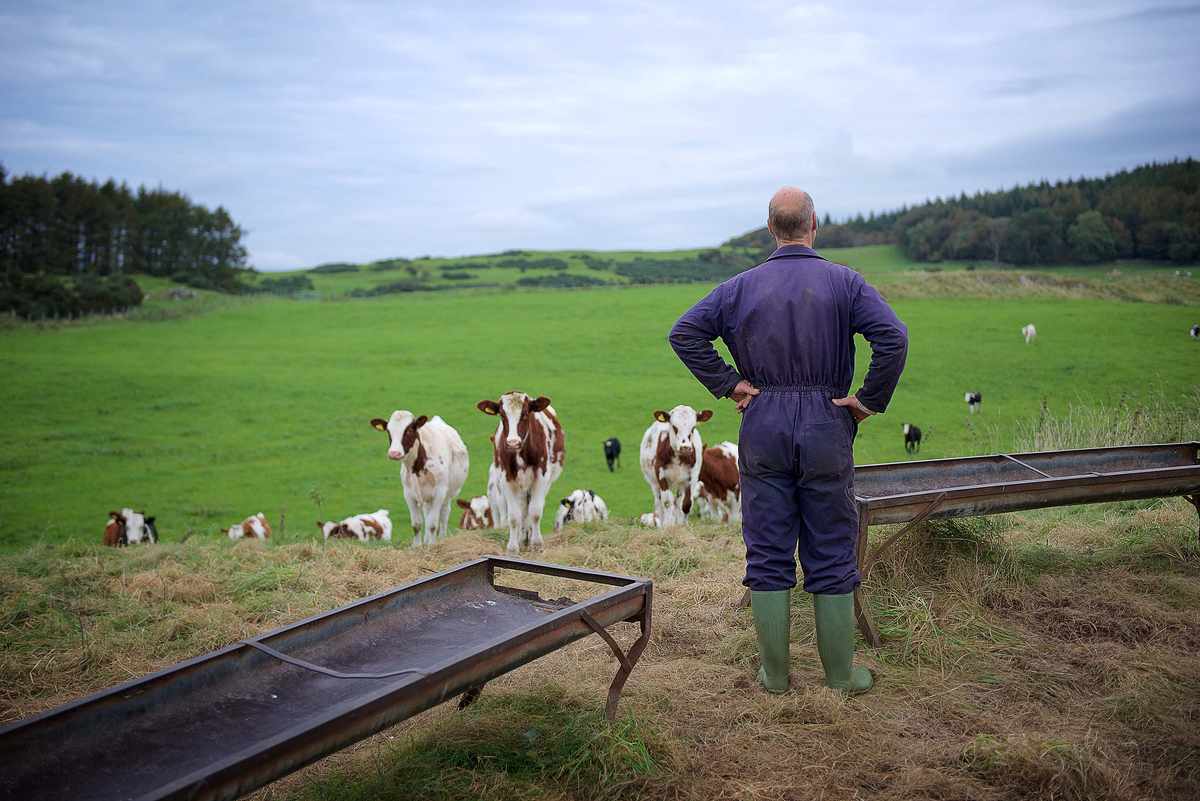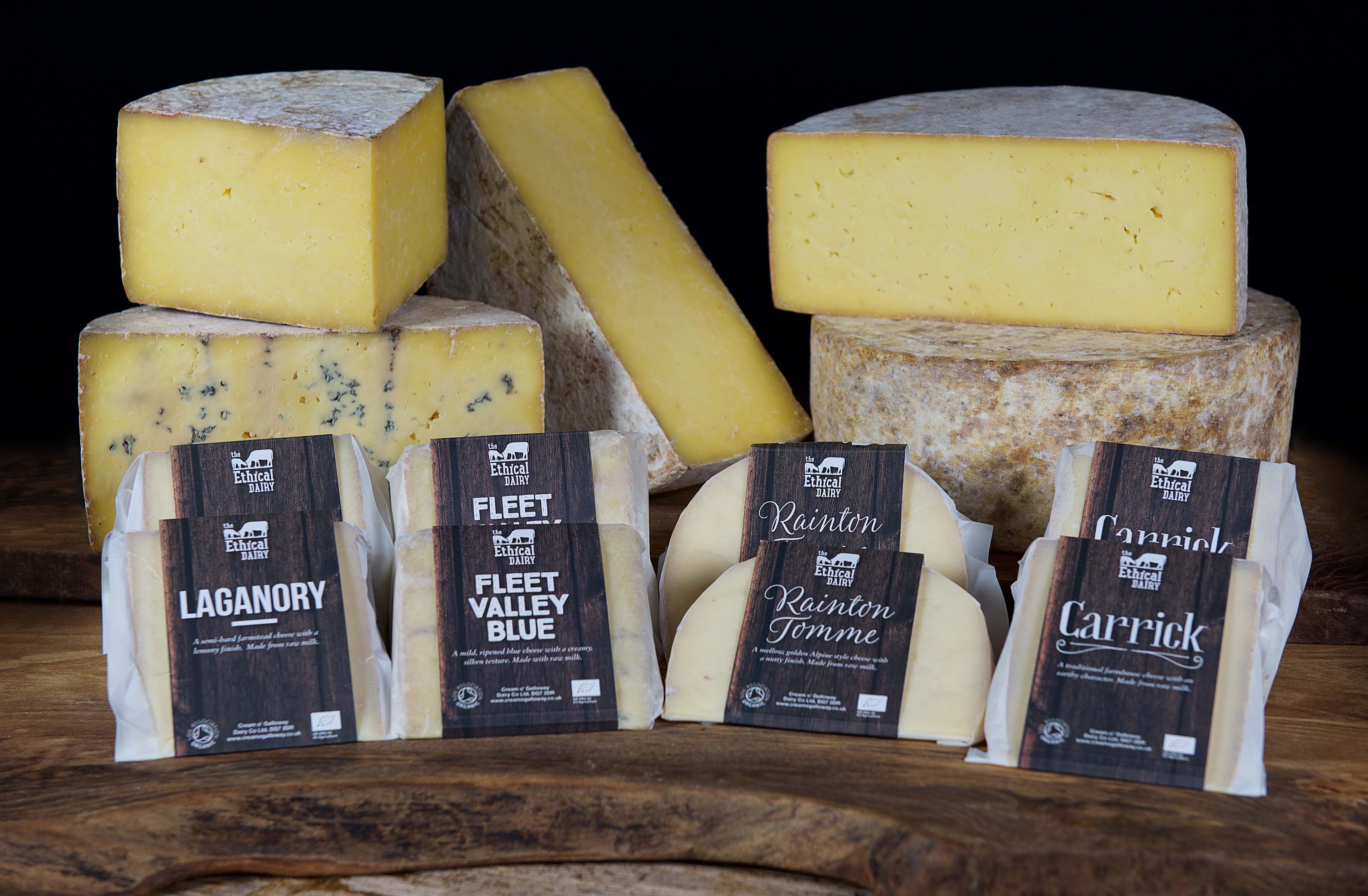Farm experimenting with deliberate de-intensification by being kinder to animals - calves are kept with their mum to suckle naturally
Farm experimenting with deliberate de-intensification by being kinder to animals - calves are kept with their mum to suckle naturally

We are on a mission to revolutionise the dairy industry. We want to prove that a kinder approach to dairy farming is possible and then encourage others in the dairy industry to change. Unlike almost every other dairy farm in the world, we have stopped taking calves away from their mothers shortly after birth. We now leave the calves - including the male calves - with their mum to suckle naturally. It means we get less milk, but also less stress. Less stress means a better life for the cows, their calves and for the people who work with them. We are the largest farm in the UK using this system and we want to prove this is viable at scale. We are now confident that it is. If we can prove cow with calf dairy farming works we know other farmers would transition to this method. Our food production model is addressing the challenges of sustainable food from a dairy-based system using a mix of agroecology and agro-technology approaches that dramatically cut waste, improve energy efficiency, facilitate natural processes and reduce our dependence on external inputs, following the principles of ‘lean production’.
Help The Ethical Dairy
So why are we asking for support? We need funding to help us share what we've learned - open-source ethical farming is our goal! We also need funding to help with the up-front costs.  Issue 1 – Farm Costs Transitioning to any new farming system is expensive – eye wateringly expensive. We always knew it would be. When farmers transition to organic there is financial support available to help to cushion the blow, but this is a brand new approach so there is no support scheme to help with managing costs while we transition. Which brings us to the second issue…
Issue 1 – Farm Costs Transitioning to any new farming system is expensive – eye wateringly expensive. We always knew it would be. When farmers transition to organic there is financial support available to help to cushion the blow, but this is a brand new approach so there is no support scheme to help with managing costs while we transition. Which brings us to the second issue…
Help The Ethical Dairy
Issue 2 – Investors We have been actively seeking business investors for about two years to support this project. We were assured that this would be easy to fund via ethical investors, but that now seems to have been a little naive. Since we want to share our model not monetise it, and since our goal is to prove this concept works, not make massive profits, it would seem we are a poor fit with traditional investors. We want open source ethical farming, we don’t want to keep what we’ve learned to ourselves! We have also explored conventional borrowing, but because we are tenant farmers that makes things more difficult.  Issue 3 – Demand We have been blown away by the demand for our products, thank you to everyone who is supporting The Ethical Dairy by buying our cheese. The problem is that at the moment our production facilities are tiny, which means our batch sizes are very small, and the cost of the testing regime that Food Standards Scotland ask for is prohibitive. Up to £5.50 per kg of cheese we produce goes on testing – that’s more than the cost of the milk! To overcome this we need to equip a new production facility sooner than we had expected which, as you might expect, leads to…
Issue 3 – Demand We have been blown away by the demand for our products, thank you to everyone who is supporting The Ethical Dairy by buying our cheese. The problem is that at the moment our production facilities are tiny, which means our batch sizes are very small, and the cost of the testing regime that Food Standards Scotland ask for is prohibitive. Up to £5.50 per kg of cheese we produce goes on testing – that’s more than the cost of the milk! To overcome this we need to equip a new production facility sooner than we had expected which, as you might expect, leads to… 
Help The Ethical Dairy
Issue 4 – Production Investment Costs We need to buy bigger production equipment and we need to connect our new cheese dairy to our farm anaerobic digester so we can use coo-poo-power to provide the energy for our cheese making! Increasing production will also result in a whole bundle of additional transition costs. For example, instead of selling some milk fresh and putting some into cheese, all our milk (i.e. our income) will be put into cheese. But it takes months to mature our cheese, which means that for around a year we will have virtually no income to pay our team to make our cheese and look after the cows and calves.  Another Important Reason The other reason why we have started this crowdfunder is because people have asked us to. We have been contacted by a number of members of the public who want to support the development of a new dairy system with which they are comfortable. Some of the most passionate advocates for a kinder approach to dairy farming are those who have stopped consuming dairy products entirely. This crowdfunder will give people a way of supporting this new approach to dairy farming more directly.
Another Important Reason The other reason why we have started this crowdfunder is because people have asked us to. We have been contacted by a number of members of the public who want to support the development of a new dairy system with which they are comfortable. Some of the most passionate advocates for a kinder approach to dairy farming are those who have stopped consuming dairy products entirely. This crowdfunder will give people a way of supporting this new approach to dairy farming more directly.


